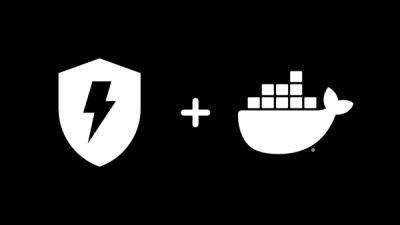langchain-postgres






The langchain-postgres package implementations of core LangChain abstractions using Postgres.
The package is released under the MIT license.
Feel free to use the abstraction as provided or else modify them / extend them as appropriate for your own application.
Requirements
The package supports the asyncpg and psycopg3 drivers.
Installation
pip install -U langchain-postgres
Vectorstore
[!WARNING]
In v0.0.14+, PGVector is deprecated. Please migrate to PGVectorStore
for improved performance and manageability.
See the migration guide for details on how to migrate from PGVector to PGVectorStore.
Documentation
Example
from langchain_core.documents import Document
from langchain_core.embeddings import DeterministicFakeEmbedding
from langchain_postgres import PGEngine, PGVectorStore
CONNECTION_STRING = "postgresql+psycopg3://langchain:langchain@localhost:6024/langchain"
engine = PGEngine.from_connection_string(url=CONNECTION_STRING)
VECTOR_SIZE = 768
embedding = DeterministicFakeEmbedding(size=VECTOR_SIZE)
TABLE_NAME = "my_doc_collection"
engine.init_vectorstore_table(
table_name=TABLE_NAME,
vector_size=VECTOR_SIZE,
)
store = PGVectorStore.create_sync(
engine=engine,
table_name=TABLE_NAME,
embedding_service=embedding,
)
docs = [
Document(page_content="Apples and oranges"),
Document(page_content="Cars and airplanes"),
Document(page_content="Train")
]
store.add_documents(docs)
query = "I'd like a fruit."
docs = store.similarity_search(query)
print(docs)
[!TIP]
All synchronous functions have corresponding asynchronous functions
Hybrid Search with PGVectorStore
With PGVectorStore you can use hybrid search for more comprehensive and relevant search results.
vs = PGVectorStore.create_sync(
engine=engine,
table_name=TABLE_NAME,
embedding_service=embedding,
hybrid_search_config=HybridSearchConfig(
fusion_function=reciprocal_rank_fusion
),
)
hybrid_docs = vector_store.similarity_search("products", k=5)
For a detailed guide on how to use hybrid search, see the documentation.
ChatMessageHistory
The chat message history abstraction helps to persist chat message history
in a postgres table.
PostgresChatMessageHistory is parameterized using a table_name and a session_id.
The table_name is the name of the table in the database where
the chat messages will be stored.
The session_id is a unique identifier for the chat session. It can be assigned
by the caller using uuid.uuid4().
import uuid
from langchain_core.messages import SystemMessage, AIMessage, HumanMessage
from langchain_postgres import PostgresChatMessageHistory
import psycopg
conn_info = ...
sync_connection = psycopg.connect(conn_info)
table_name = "chat_history"
PostgresChatMessageHistory.create_tables(sync_connection, table_name)
session_id = str(uuid.uuid4())
chat_history = PostgresChatMessageHistory(
table_name,
session_id,
sync_connection=sync_connection
)
chat_history.add_messages([
SystemMessage(content="Meow"),
AIMessage(content="woof"),
HumanMessage(content="bark"),
])
print(chat_history.messages)
Google Cloud Integrations
Google Cloud provides Vector Store, Chat Message History, and Data Loader integrations for AlloyDB and Cloud SQL for PostgreSQL databases via the following PyPi packages:
Using the Google Cloud integrations provides the following benefits:
- Enhanced Security: Securely connect to Google Cloud databases utilizing IAM for authorization and database authentication without needing to manage SSL certificates, configure firewall rules, or enable authorized networks.
- Simplified and Secure Connections: Connect to Google Cloud databases effortlessly using the instance name instead of complex connection strings. The integrations creates a secure connection pool that can be easily shared across your application using the
engine object.
| Google AlloyDB | ✓ | ✓ | ✓ | ✓ | ✗ |
| Google Cloud SQL Postgres | ✓ | ✓ | ✓ | ✓ | ✗ |







